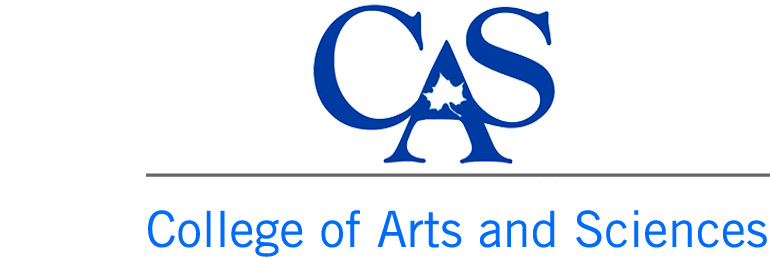You are here
Graduate programs in English at Indiana State University provide opportunities for two concentrations in English studies. Course work is offered in British and American literature, general and comparative literature, rhetoric and composition, and creative writing.
Recent students in the program reflect a broad regional and institutional diversity, coming from the Midwest, the South, both coasts, and foreign countries. Past and current students have earned undergraduate degrees from schools ranging from large land-grant and urban institutions—such as Indiana University, Michigan State University, and the University of Miami—to small liberal arts colleges—such as Augustana, Oberlin, and Wabash.
Recent alumni of the program have pursued the PhD and MFA in top-caliber programs like Ohio State University, Purdue University, and the University of Kentucky; others are teaching at community colleges and high schools or working as technical writers, newspaper editors, and university administrators.
Degrees Offered
Master's Programs. The Department offers two master’s programs, each requiring 33 semester hours. Both master’s programs require courses in research, theory, and literature, as well as courses outside the area of concentration. Moreover, both programs require a culminating experience of a master's paper, creative project, or thesis.
Master of Arts in English with Concentration in British and American Literature. This program prepares students for further graduate work in British and American literature or related areas and also serves those preparing to teach at the high school or college level.
Master of Arts in English with Concentration in Writing. This program is designed for students planning further graduate work in creative writing, rhetoric/composition, or related areas; for those preparing to teach at the high school or college level; and for those planning to practice writing or editing in other professions. For the culminating experience, creative writing students produce a lengthy project—for instance, a novel or a collection of stories or poems.
Program Resources
Joseph S. Schick Lecture Series. This endowed speaker series brings two to four scholars of international reputation to campus each semester to speak to faculty and graduate students. Lecturers have included M.H. Abrams, Houston Baker, Nina Baym, Cleanth Brooks, Terry Eagleton, Susan Gubar, and J. Hillis Miller.
Bash Lecture Series. This endowed speaker series brings one scholar each year to deliver a lecture to faculty and graduate students. Lecturers have included John N. Duvall (2016), Leslie Bow (2017), and William J. Harris (2018).
Visiting Writers. Sponsored by the Department or the University Speaker Series, recent visits by poets and fiction writers include Jane Hamilton, Michael Martone, Robert Pinsky, Donald Hall, Charles Johnson, Helena Maria Viramontes, W.D. Snodgrass, Dana Gioia, Michael Harper, and Mary Kinzie.
Cunningham Memorial Library. Cunningham Memorial Library provides access to over one-million volumes and includes excellent holdings in English studies. Among the special collections, the internationally known Cordell Collection of Rare Books and Early Dictionaries contains more than 5,000 titles representing the evolution of Western dictionaries from 1400 to 1900. Recently the Cunningham Memorial Library has been the recipient of the Floyd Collection of over 2,500 English composition textbooks covering more than 100 years and providing an exceptional resource for anyone interested in the history of instruction in rhetoric/composition.
Social Activities. While dedicated to providing a rigorous program of study, the Department also recognizes the need to promote a spirit of camaraderie. Thus, the Department invites graduate students to the annual Department party and includes graduate students in lunches, dinners, and receptions to honor Schick Lecturers.
Landini Speaker Series. The Department sponsors a forum in which faculty and graduate students share their work in a collegial atmosphere. The Landini Series sometimes includes visiting scholars, critics, and writers.
Assistantships and Scholarships
Graduate Assistantships. At present, the Department supports ten current graduate students in English with assistantships that provide a stipend and tuition waiver. Each teaching assistant shares an office in the Department with one other teaching assistant. During their first year, teaching assistants teach one composition course each semester and work ten hours a week in the University’s Writing Center; during their second year, teaching assistants teach two composition courses each semester. Graduate scholarships with waivers of most fees are available. Other financial aid is available through the Office of Student Financial Aid.
Admissions Requirements. In addition to meeting the general requirements of the School of Graduate and Professional Studies, applicants for regular admission to all master’s programs must have an undergraduate major or minor in English or a strong background in undergraduate studies in English. Those lacking an appropriate major or minor should consult the Director of Graduate Studies in English concerning departmental admission criteria. Conditional admission to all master’s programs may be granted to other applicants on the basis of grades in language and literature courses, undergraduate grade point averages, GRE verbal and advanced literature scores, faculty letters of recommendation, and writing samples.
Graduate Handbook
Concentrations
![]() MA in English—Concentration in British and American Literature.pdf
MA in English—Concentration in British and American Literature.pdf
Approval Forms
Master's Paper
![]() Approval of Master’s Paper (English 692) Committee.pdf
Approval of Master’s Paper (English 692) Committee.pdf
![]() Approval of Master’s Paper (English 692) Proposal.pdf
Approval of Master’s Paper (English 692) Proposal.pdf
Master's Creative Project
Master's Thesis (Literary or Creative)
![]() Approval of Thesis (English 699) Committee.pdf
Approval of Thesis (English 699) Committee.pdf
